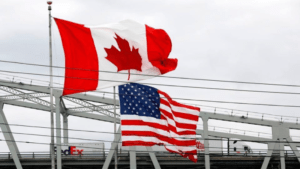As Open Jaw has been reporting, Canada’s federal government confirms it is conferring with the provinces to review current COVID protocols, including severe border and travel restrictions that are inhibiting Canadians’ return to travel.
Not only are federal policies now inconsistent with a number of provincial policies, creating confusion and hesitation for Canadians who want to travel.
Canada’s top doctors have finally told Canadians that the Omicron variant has proven that COVID is here to stay, and that the government they advise must revise policies to allow for a return to “normalcy” without “unduly restricting travel and trade."
This country is now well behind the overwhelming, irrefutable trend of destinations dropping restrictive testing requirements that no longer serve the purpose of keeping COVID out.
Europe
New guidance took effect 01FEB for EU member states, with the EU now recommending that arriving pax be evaluated for entry into EU states based solely on individual vaccination status - with no restrictions, like onerous pre-departure or arrival testing - for fully vaccinated travellers.
Even before that announcement, Denmark completely eliminated all COVID restrictions, not just for travellers, but also for its residents. Similarly, in other EU countries like Norway, or even Australia, announced it’s lifting its famously stringent lockdown beginning this month, COVID measures are veering away from border closures and restrictions to “personal responsibility.”
As previously reported by Open Jaw, England, Scotland, Ireland, and Switzerland have also already dropped testing requirements for fully vaccinated travellers.
England had already previously dropped pre-arrival testing for vaccinated travellers, and will drop the testing requirement on day 2 after arrival.
Scotland is doing the same, and the new rules for both countries take effect on 11FEB.
Ireland dropped testing requirements for fully vaccinated individuals on 06JAN, and will only require proof of vaccination or recovery from recent infection upon entry. The country also recently ended nearly all of its public COVID-19 restrictions.

On 22JAN, Switzerland also eased travel requirements for fully vaccinated Canadian and U.S. visitors, dropping the need for pre-arrival tests. Canadian visitors can also provide proof of recent COVID-19 recovery to travel.
As of 07FEB, Greece is allowing tourists with a European vaccination certificate to enter the country without having to show a negative test for COVID-19, as had been previously required. Random tests will still be conducted at airports and if the result is positive, travellers must quarantine for five days.
Now, a government official says France will also “this week” drop pre-arrival testing requirements for fully vaccinated travellers “outside the EU,” reports one source.
Sun Destinations
The trend isn’t just in the high-vaccination countries of Europe.
As Open Jaw has reported, vaccinated travellers flying to Cuba do not need to provide negative COVID-19 tests or quarantine upon arrival, and wearing a mask in public spaces is mandatory within the country.
Mexico has been open for non-essential travel since NOV 2021, with no testing requirements, but travellers are required to fill out health declaration forms that are checked upon arrival.
To enter the Dominican Republic, vaccinated travellers do not need to present negative test results. There are testing requirements for unvaccinated pax and all arrivals must submit digital forms before or upon arrival.
Costa Rica requires no negative test results for vaccinated travellers, and there are no quarantines. All travellers, regardless of whether or not they’ve been vaccinated, must fill out health forms within 72 hours of reaching the country’s border, while unvaccinated travellers must provide proof of travel insurance that could cover the cost of a quarantine.
St. Maarten also dropped testing requirements for boosted travellers back in JAN.
This week, Aruba has also relaxed its travel policies waiving pre-testing requirements for fully vaccinated individuals with booster shots. Visitors must have also uploaded proof of vaccination, including their booster dose.





